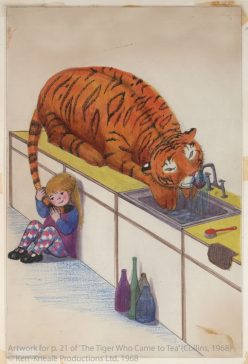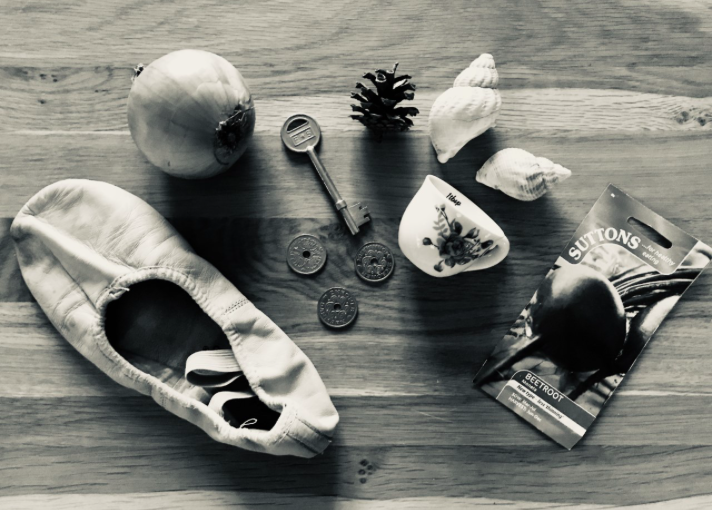In this blog post, PhD candidate Helen King feeds back on our recent workshop on creative approaches to academic writing.
Within CLUGG we to like vary our activities as much as possible, and jump at the chance to learn new skills and develop as researchers. On the 13th March we had the pleasure of a visit from Ann Coburn, a children’s and YA novelist and playwright who lectures in Creative Writing at Newcastle University and is an accredited Royal Literary Fund Fellow. Ann led us in a workshop on creative approaches to academic writing, using a variety of exercises to help us reflect on our work in progress.
Writing can be the hardest and also the most solitary part of a research process, requiring a balance of the methodical and the creative that is often hard to get right. Getting together to explore the writing process helped us dwell on the pleasure of the writing experience without the pressure of a looming deadline or set of criteria. This was also a challenge; as researchers we invest much of ourselves into our writing, and sharing our writing with a group required a certain level of vulnerability. Ann was good at getting each of us out of our comfort zones by tasking us with short bursts of writing without any planning, which we then shared with the group.
For one such activity, she handed rounded a bag of objects: an apple, coins, a bottle of water for instance. We were to choose something that could represent our work in progress (WIP, as you shall see written here), be it a PhD, Masters thesis, book or journal publication. We then wrote for 10 mins to explore why we felt drawn to that object as a analogy for our work. Here are some examples from three of us at CLUGG:
My work in progress is like a Danish kroner. It has value, both in the money it costs me to do and in the sentimental value it has in looking back at the same texts I used for my undergraduate dissertation and inspired my aspiration to be a researcher. Currency is passed from person to person and from pocket to pocket, accumulating more wear and marks as people exchange it. This is also what happens to research, as ideas are exchanged like currency. I borrow aspects of my research from the pockets of other researchers and hope to add to the wear and marks that they have made in my own use of it. The hole in the centre of the kroner is like the hole at the centre of my work in progress. The only difference between them is that the hole in the kroner is permanent, but the hole in my work is destined to be filled in.
My current WIP is a history of the Carnegie Medal. It’s like a pine cone, in that it has many small, individual parts, each of which is distinct, but which interlock to create a bigger thing. Unlike a pine cone, though, all the individual parts are quite different in size and shape – it’s not neat and regular. As with a pine cone, though, once you start pulling all those bits apart to look at them more closely, it’s really hard to fit them neatly back together again!
My WIP is like an onion because, to paraphrase the great poet Shrek, it has layers. And sometimes it stinks, and makes you cry. This PhD feels more vulnerable and personal than I think I had ever imagined it would. If it has layers, then my research is currently in the outer layers. This means that I don’t know what I’m going to find. I can guess – and the more I look the better my guesses get, but I am not going to know until I get in there with a good sharp knife. These outers layers, be it ‘children’s literary criticism’ or ‘reader response theory’ or ‘critical race theory’, have to be got through before I can get to the more specific details, the details that are really mine. And like an onion, what it needs is patience. You can’t expect to blast it over a gas flame for 3 mins and not have a charred mess. It needs time, low heat and a lot of butter.
In doing this exercise, we were surprised at how it revealed new ways of thinking about our research. For a few of us, there was a realisation of how much one personally invests in academic research, whilst it helped others to reimagine their position as a researcher as being like one part of a greater dialogue that made up their field.
The rest of the session was spent drawing associations between opposing themes within our research, and then free writing using these associations as a trigger. Free writing involves writing continuously for a set period of time, without planning, and without any particular regard for spelling, sentence structure or content. We were all surprised at how this exercise allowed us to see connections that we had not been able to see before, and to tap into a more intuitive of way of thinking about out subject.
As well as being good fun and getting us out of out comfort zones, this session has given all of us tools that we will be able to draw on as we continue with our research. Thanks go to Ann Coburn for her expert leadership, and PhD candidate Lucy Stone for organising the session.

